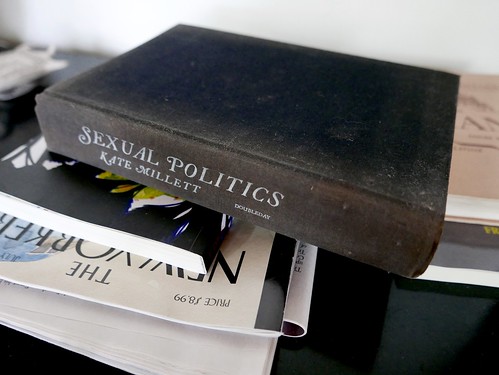"Our school was founded with wealth generated though the profoundly immoral institution of slavery. We should not hide that fact nor hide from it. We can and should be proud of many things this school has contributed to the world. But to be true to our complicated history, we must also shine a light on what we are not proud of."
Said John F. Manning, the Morgan and Helen Chu Dean and Professor of Harvard Law School, at the uncovering of a plaque affixed to a small boulder.
Manning is quoted in Harvard Law Today. The plaque reads (in all caps):
In honor of the enslaved whose labor
created wealth that made possible
the founding of Harvard Law School
May we pursue the highest ideals
of law and justice in their memory
We're told the text was "drafted by [Annette] Gordon-Reed, the Charles Warren Professor of American Legal History at Harvard Law School and Professor of History on the Harvard Faculty of Arts & Sciences, and the Pulitzer Prize-winning author of 'The Hemingses of Monticello: An American Family.'"
Gordon-Reed observed that memorials usually name people. In this instance, she said, we will never know the names of all the Africans enslaved in Antigua whose labor created wealth that helped start the Law School. “The words [inscribed on the plaque] are designed to invoke all of their spirits and bring them into our minds and our memories with the hope that it will spur us to try to bring to the world what was not given to them: the laws [sic] protection and regard, and justice.”
On the idea of a memorial to persons whose names are unknown: There is a worldwide tradition of tombs to
"the unknown soldier." And there is a
"Tomb of the Unknown Slave" in New Orleans:
Resting next to one of the walls of the St. Augustine Catholic Church of New Orleans is a rusting cross made of thick chains. Medieval metal shackles hang from the length of it, while smaller crosses are planted in the ground around their larger brethren....
While no one is actually (officially) buried beneath, the cross is a constant and haunting reminder of the legacy of oppression that led to America’s modern prosperity. It may not be the most uplifting memorial in the land....
The Harvard plaque is, visually, much more discreet, and the text is very carefully composed to be uplifting.
ADDED: Here's
the NYT review, by the historian Eric Foner, of "The Hemingses of Monticello: An American Family":
Gordon-Reed acknowledges that it is almost impossible to probe the feelings of a man and a woman neither of whom left any historical evidence about their relationship.... But Gordon-Reed is determined to prove that theirs was a consensual relationship based on love.... She sets up a series of straw men and proceeds to demolish them — those who believe that in the context of slavery, love between black and white people was impossible; that black female sexuality was “inherently degraded” and thus Jefferson could not have had genuine feelings for Hemings; that any black woman who consented to sex with a white man during slavery was a “traitor” to her people. She cites no current historians who hold these views, but is adamant in criticizing anyone who, given the vast gap in age (30 years) and power between them, views the Jefferson-Hemings connection as sexual exploitation.
As a black female scholar, Gordon-Reed is undoubtedly more sensitive than many other academics to the subtleties of language regarding race. But to question the likelihood of a long-term romantic attachment between Jefferson and Hemings is hardly to collaborate in what she calls “the erasure of individual black lives” from history. Gordon-Reed even suggests that “opponents of racism” who emphasize the prevalence of rape in the Old South occupy “common ground” with racists who despise black women, because both see sex with female slaves as “degraded.” This, quite simply, is outrageous.
ALSO: The plaque on a rock
seems to invite cries out for the response that a plaque on a rock is not enough.
Surely, the law professors at Harvard realize this.
The rock offers a place to stand. I cannot believe that students will not take to standing on the rock and haranguing passersby — in this prominent location — about the insufficiency of a plaque on a rock.
But maybe that's the genius idea of a plaque on a rock. It's a performance-art piece that finds completion in its use over the years.
I'm assuming there's no rule at Harvard against standing on rocks that have plaques.
AND: "We have placed this memorial here, in the campus crossroads, at the center of the school, where everyone travels, where it cannot be missed." Cannot be missed, but it's off to the side. Along the way. They should have put it right in the path, made it a veritable stumbling block.
Haranguer on the Rock:
You're only looking at this rock because I'm standing on it, forcing you to look. They put this rock out of the way, so they could say they took notice, and it's in an important place, but you'll only look straight in front of you or at your slave-made iPhone, not at this rock. I demand that the rock be relocated right in the center of the path, where you'll have to pay attention so you don't trip and fall on your face and break your iPhone that was built for you by slaves. Look it up. On your iPhone, that you can read without tripping because the stone was put over here where you wouldn't have to look if I weren't saying look. Look it up....
















